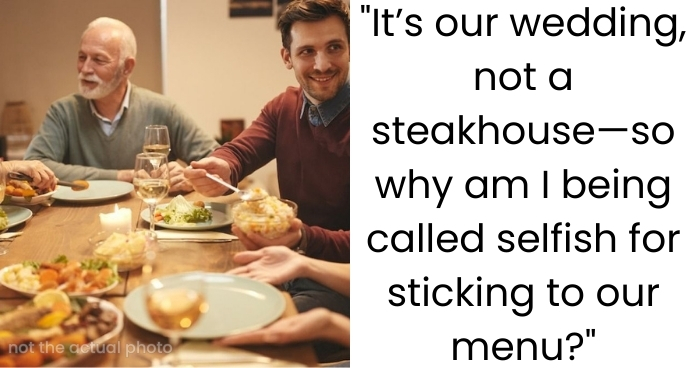Bride refuses to change wedding menu for ‘extremely traditional’ in-laws, ‘we’re not meat-and-potatoes people.’ AITA?
You’re about to tie the knot, and both you and your fiancé have meticulously created an aesthetically pleasing menu that you’re pumped to show off (with an emphasis on seafood, pasta and any vegetarian dishes). But your future in-laws, who you just can’t handle at the moment for a million reasons—not the least of which being that they are such a traditional eater—are upset that there’s no steak or classic meat-and-potatoes dish. A request for an addition has been made several times, offered to pay for it, and yet you can’t help but feel adding a piece to the program now would foul your plans and budget. Your fiancé is with you but did imply maybe a couple normal meals like for the sake of peace. Your in-laws believe you are selfish, and some of your relatives believe you should just abide them.
Read for more info Reddit
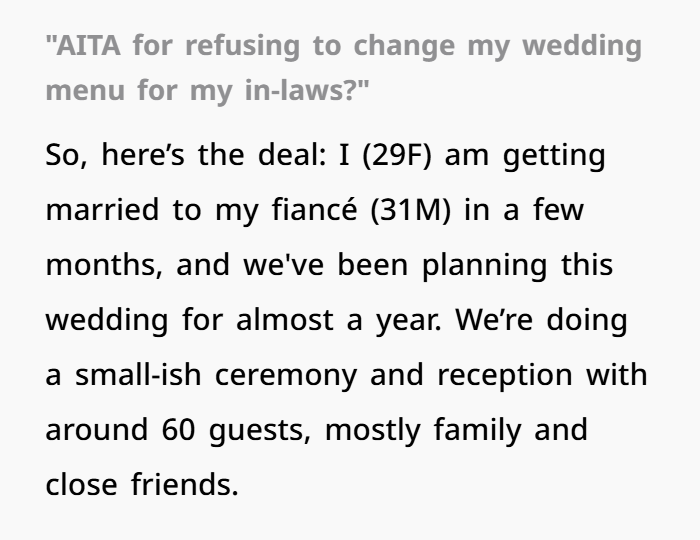
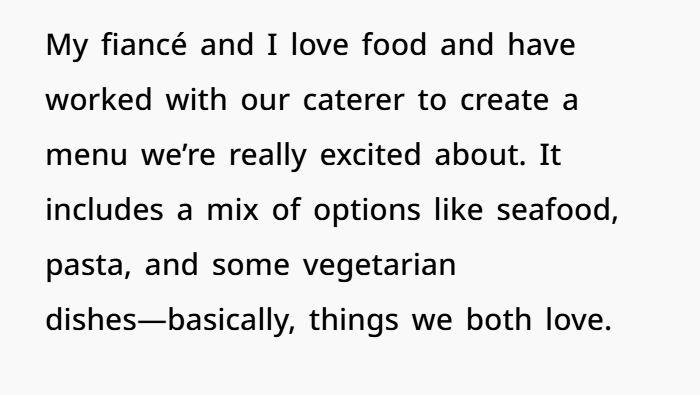
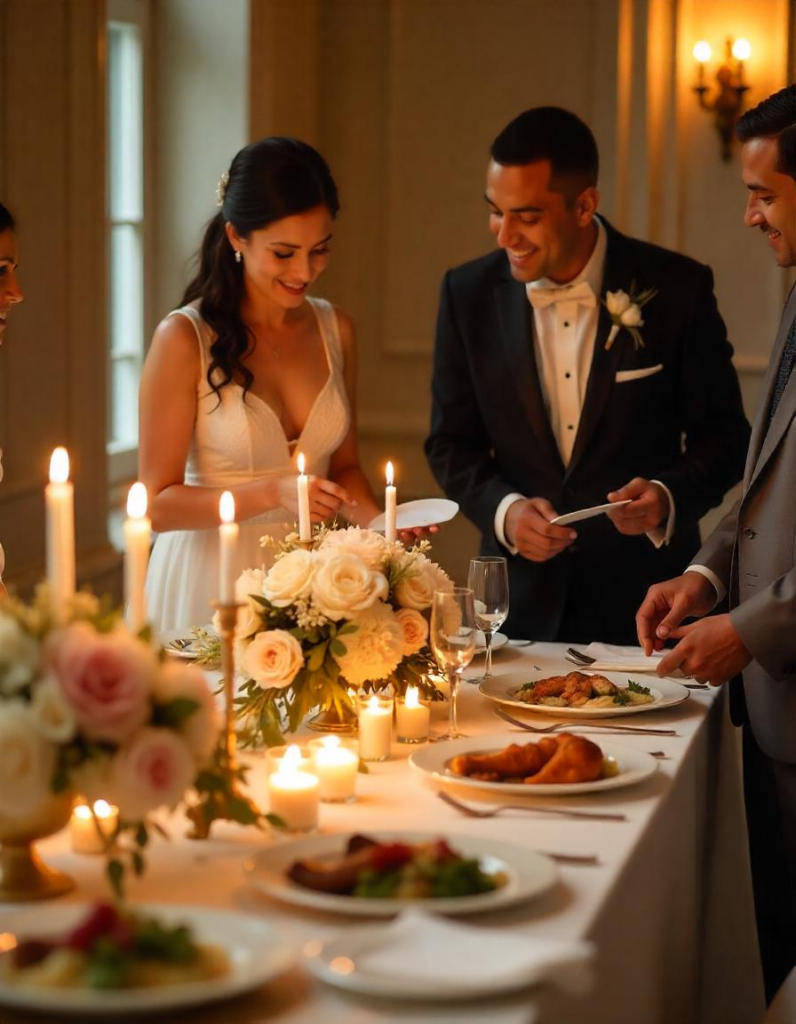
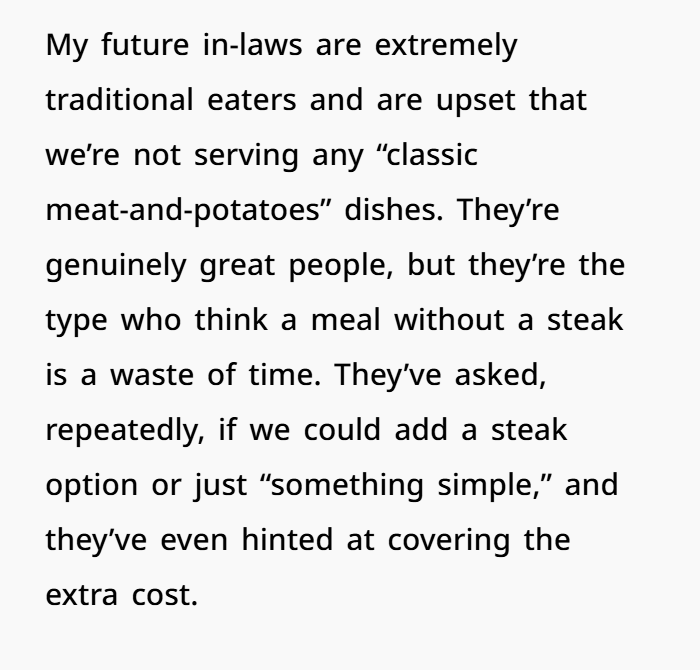
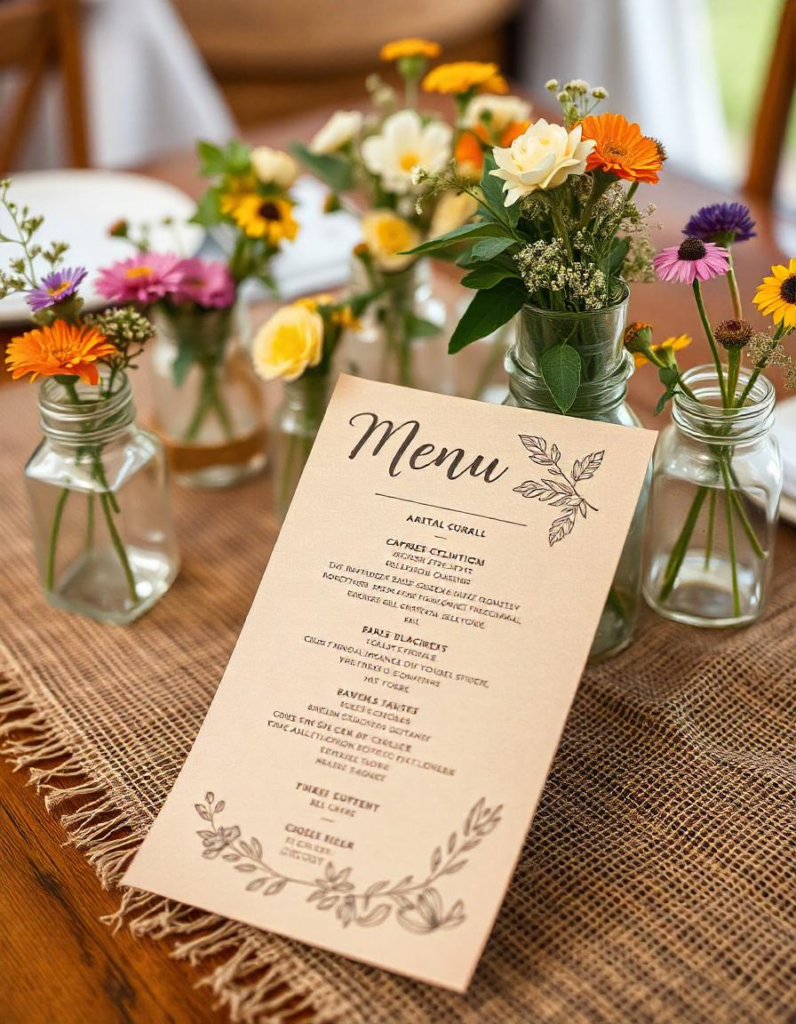
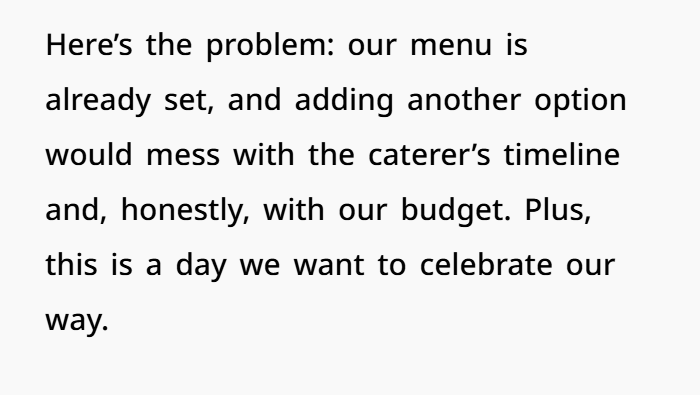
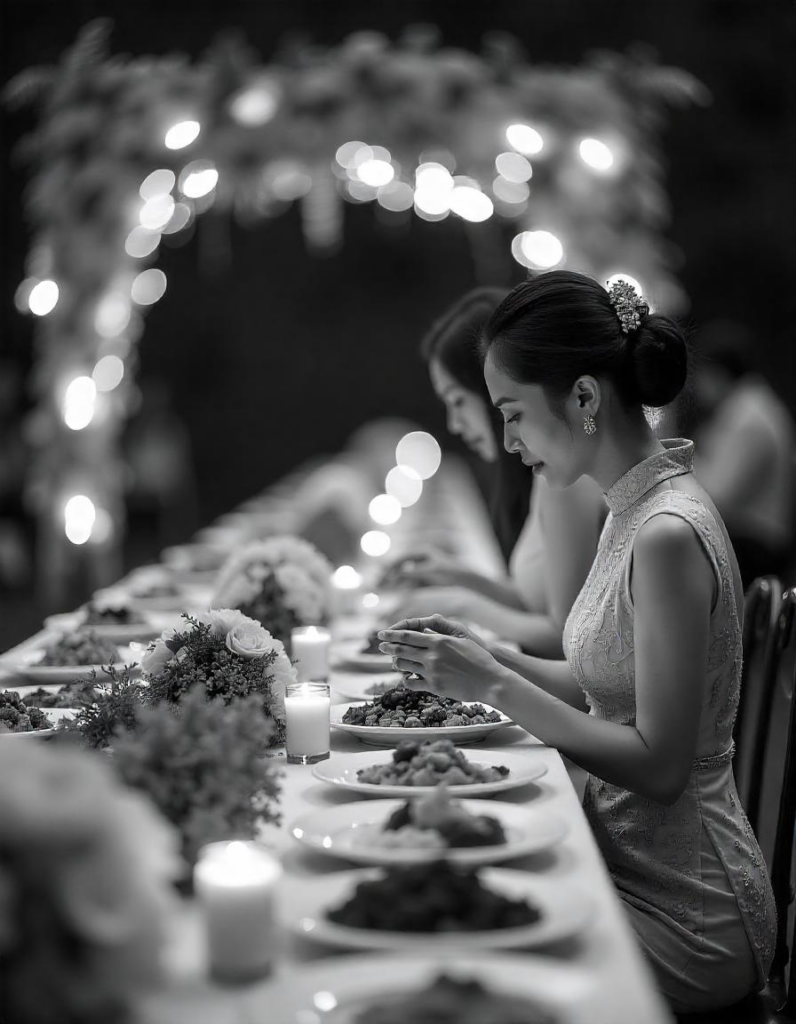
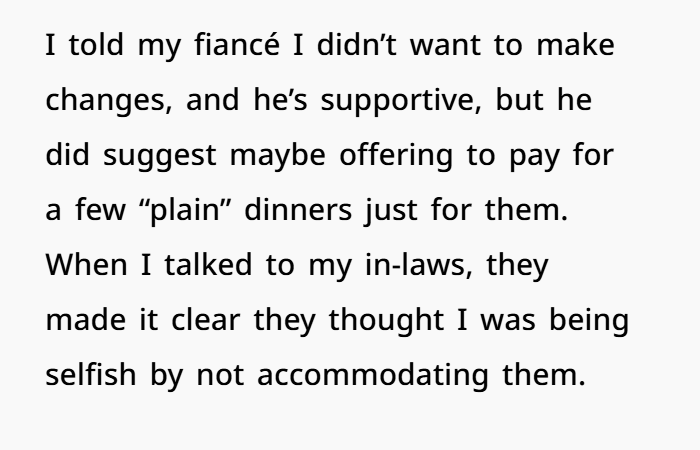
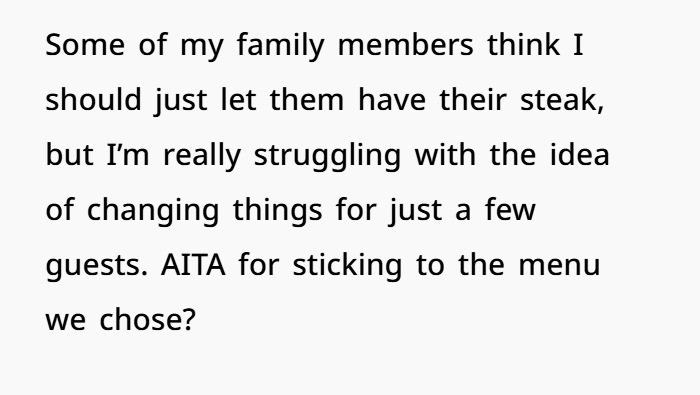
Balancing Guest Preferences with Wedding Vision
Your situation brings up a classic wedding dilemma: how much should a couple accommodate guest preferences versus sticking to their vision? While weddings are about celebrating love and unity, they are also deeply personal events where the couple should feel comfortable and happy with their choices.
The Etiquette Perspective
Traditional wedding etiquette suggests that hosts should consider guests’ dietary needs (e.g., allergies, religious restrictions) but are not obligated to cater to personal preferences. Your menu already includes vegetarian and seafood options, meaning there is variety. Emily Post’s wedding etiquette emphasizes that while hospitality is key, the couple has the final say on what is served. Guests, in turn, are expected to be gracious about the food provided.
The Cultural Expectation of “Classic” Meals
Your in-laws’ disappointment likely stems from generational and cultural expectations. In many families, especially those from more traditional backgrounds, a wedding meal isn’t considered complete without a staple like steak, chicken, or another hearty protein. A 2023 wedding catering survey found that 60% of guests expect a “main protein dish,” with beef and chicken being the most requested. However, the same survey also highlighted that modern couples increasingly opt for personalized, non-traditional menus that reflect their tastes rather than societal expectations.
Compromise Without Losing Your Vision
Your fiancé’s suggestion of offering a few plain dinners might be a reasonable middle ground. Some caterers allow minor modifications, like a simple grilled chicken or beef dish, without completely overhauling the menu. If this wouldn’t cause logistical issues, it could be a way to acknowledge your in-laws’ preferences without compromising your wedding vision. However, if your caterer is strict about changes or if this feels like a slippery slope, standing firm is entirely justified.
Setting Boundaries Without Creating Conflict
Your in-laws may see your refusal as a rejection of their traditions, but it’s important to communicate that this is about your wedding vision, not about excluding them. A diplomatic approach could be to express appreciation for their offer while reiterating that the menu is set. If they continue to press the issue, reminding them that other guests also have preferences that won’t be met might help put things into perspective.
Here’s what top commenters had to say about this one:

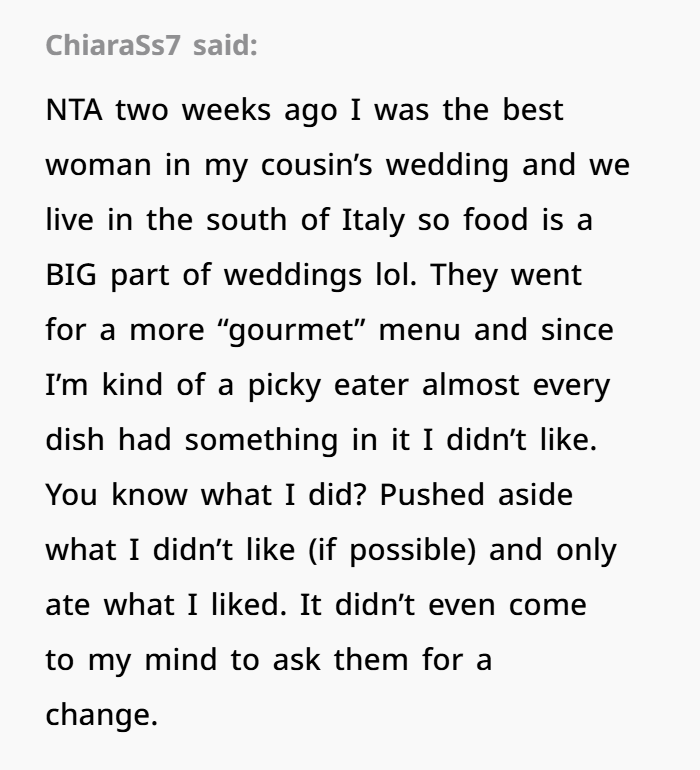
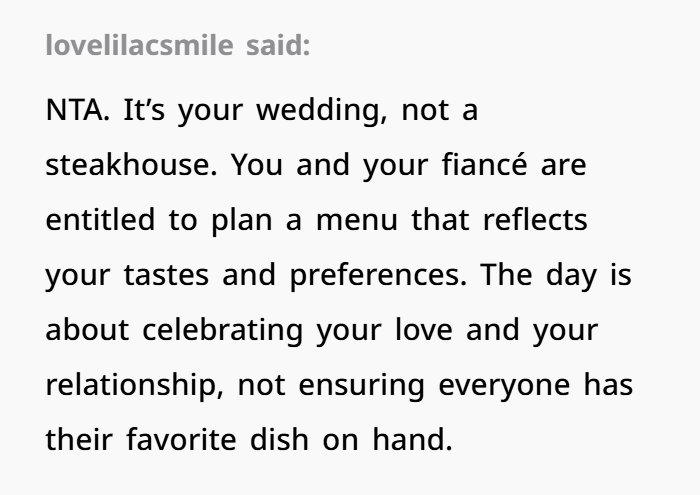

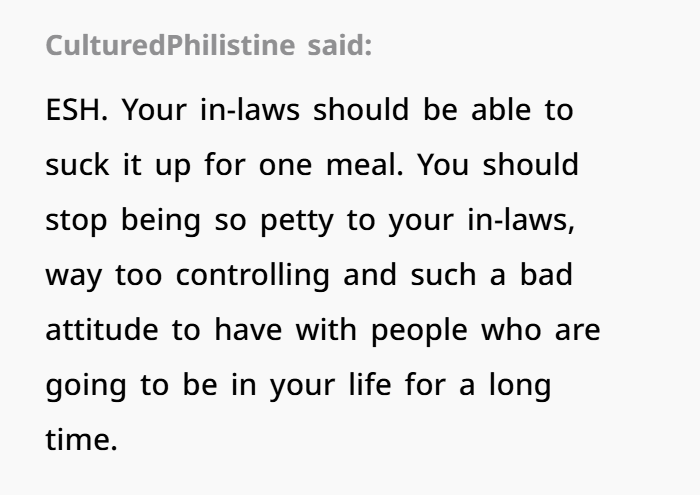
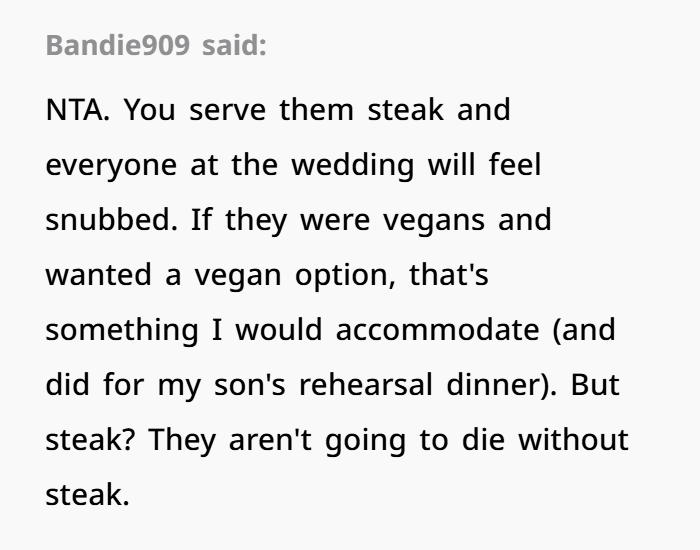
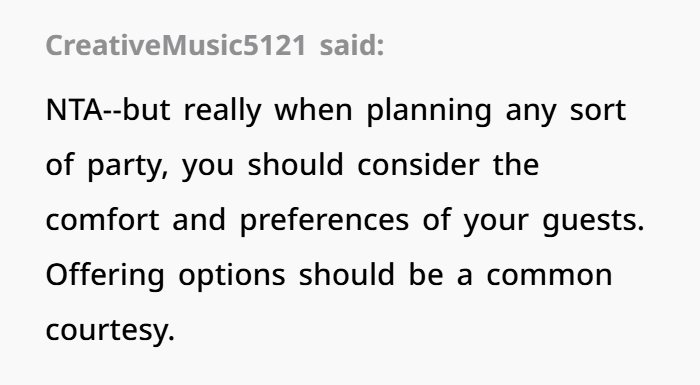

If that’s what you want to eat, then do it — but your wedding menu needs to be about you and your fiancé, not satisfying the palates of a couple of guests. Of course, if someone has an allergy or dietary requirement, it’s only considerate for one or all of those to be met, but if the preference alone means menu changes drastically, then that is not something that one should be obliged to meet. If they don’t like what we will offer, they can eat before or go with the dishes available. Your plan is most definitely not selfish, but if you need to defuse the situation, you can always add a couple of easy meals – if you do, it shows that you are willing to compromise a little.

